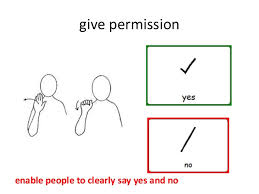 When I decided I wasn’t going to let Dylan bring four bags home for his overnight stay yesterday, it meant saying No to him firmly. Packing for home visits has been an issue since Dylan moved to residential care; as well as clothes, Dylan’s overnight bags will typically contain 10-15 DVDs, a similar number of books and CDs, his toiletries and various personal items. Staff have tried to persuade him to pack a single bag but without success.
When I decided I wasn’t going to let Dylan bring four bags home for his overnight stay yesterday, it meant saying No to him firmly. Packing for home visits has been an issue since Dylan moved to residential care; as well as clothes, Dylan’s overnight bags will typically contain 10-15 DVDs, a similar number of books and CDs, his toiletries and various personal items. Staff have tried to persuade him to pack a single bag but without success.
‘He’s packed too much stuff but I thought I’d leave it till you arrived’, a care worker said to me one weekend: ‘he accepts No better from you.’ I’ve never been averse to using the No word with Dylan. As far as I am concerned, his need for guidance is similar to that of someone much younger; Dylan may be an adult but his ability to make appropriate decisions is determined by his developmental not chronological age. Dylan needs boundaries and he looks to me to establish these in the same way school pupils want their teachers to set limits.
 At the moment, I suspect, Dylan is testing a few boundaries. He has lived at his care home long enough now for the environment and staff to be familiar; I’m not surprised if he’s pushing, seeing how far he can go. There have been minor incidents: smashed light bulbs and a thrown potato, for example 🙂 When I mentioned these to Dylan last week, he grinned broadly. I am fairly certain he knows the difference between right and wrong and the meaning of Yes and No.
At the moment, I suspect, Dylan is testing a few boundaries. He has lived at his care home long enough now for the environment and staff to be familiar; I’m not surprised if he’s pushing, seeing how far he can go. There have been minor incidents: smashed light bulbs and a thrown potato, for example 🙂 When I mentioned these to Dylan last week, he grinned broadly. I am fairly certain he knows the difference between right and wrong and the meaning of Yes and No.
No is a word which Dylan employs himself quite often. In this post I suggested that Dylan uses it to indicate elimination (as in ‘no, we are not going that way’) or for purposes of self-regulation (as in ‘no, I can’t eat another piece of cake’). Realising that Dylan could be using No functionally changed my attitude to the word; instead of thinking about it as negative, I thought of No as a positive communication strategy for Dylan.
This is out of step with those who argue we should not say No to adults with autism/learning disability. Such an argument arises partly from the belief that we should always use positive language: rather than saying ‘don’t run’, for example, say ‘walk’. I agree with this; someone with limited understanding will, I know, hear the key word and focus on ‘run’ rather than on ‘don’t’, thus misunderstanding the instruction. A reason for not saying No I find more challenging, however, is that the use of it could contravene legislation relating to Deprivation of Liberty Safeguards (DoLS).
 While I wouldn’t argue with the principle, I find some applications of DoLS problematic (as I have previously noted). Saying No to Dylan when he requests a third helping of food or wants to watch a DVD in the middle of the night could be considered a ‘Deprivation of Liberty’ for example. I would have no hesitation in saying No, however, on grounds that Dylan had already had sufficient to eat (and needs support to stay healthy) or would be tired next day (and so unable to access activities),
While I wouldn’t argue with the principle, I find some applications of DoLS problematic (as I have previously noted). Saying No to Dylan when he requests a third helping of food or wants to watch a DVD in the middle of the night could be considered a ‘Deprivation of Liberty’ for example. I would have no hesitation in saying No, however, on grounds that Dylan had already had sufficient to eat (and needs support to stay healthy) or would be tired next day (and so unable to access activities),
Clearly it is problematic if those involved in providing care are not on the same page in relation to the setting of boundaries. Fortunately this has not been a major issue in Dylan’s current provision. It has, however, been an issue in the past. At Dylan’s review last week, for example, I was reflecting on his weight loss since he moved to residential care. Dylan had gained a large amount of weight while at a day centre, something which had concerned and puzzled me. Only recently have I realised that this was a consequence of the lack of appropriate boundaries around food at the setting: ‘Dylan gets what he wants here’, I was told, ‘no one says No to Dylan’.
As I have suggested previously, offering a buffet to people who struggle with portion control (under the guise of ‘choice’) is ill-advised. Doing this within the framework of ‘not saying No’ however (under the guise of DoLS) compounds the issue. Unfortunately such practices also tend to undermine trust. If Dylan wasn’t given boundaries in relation to food, how were other behaviours managed? Could the behavioural challenges that emerged in Dylan at this time have been linked, directly or indirectly, to the absence of limits? Perhaps the difficulties experienced by some young people at the point of transition from school to adult services could be at least partly explained through the removal of boundaries.


So how many bags DID he get away with: 😉
LikeLiked by 1 person
ha ha very astute Nell. Three 😦 One of the care workers suggested a sort of checklist for next time, where he gets to tick things off as he packs 🙂
LikeLike
I found with my own kids and general experience that ‘No’ as a command implies a very parent/child relationship at the outset. So rather than say no, i started to imply a direction of thought rather than satisfaction of desire. For time, my kids would get a 5 minute warning. The 5 minute warning gave them sufficient time to come to terms with having to leave something or do something else. I would never say yes or no, but rather indicate something that would be in both our best interests. In the end however as they grew up, you let go a bit because its their life, but trying to teach how their life impacts other peoples lives. Not easy though. For the bag packing, rather than say know, you might say… see if you can get all that stuff into two bags.. then if possible they have to experience prioritization and choice. Might take a few trips I would imagine.
LikeLike
Hi there – thanks for reading and your comment. I like the idea of a ‘direction of thought rather than satisfaction of desire’. That sounds like something I could use in my own life too 🙂 The ‘two bags’ idea is interesting – that way he could bring what he wanted as long as he could fit it in. Might try that! thank you…
LikeLike
Pingback: Day 64: Obscured | Living with(out) Autism
Pingback: Day 86: Food Shopping | Living with(out) Autism